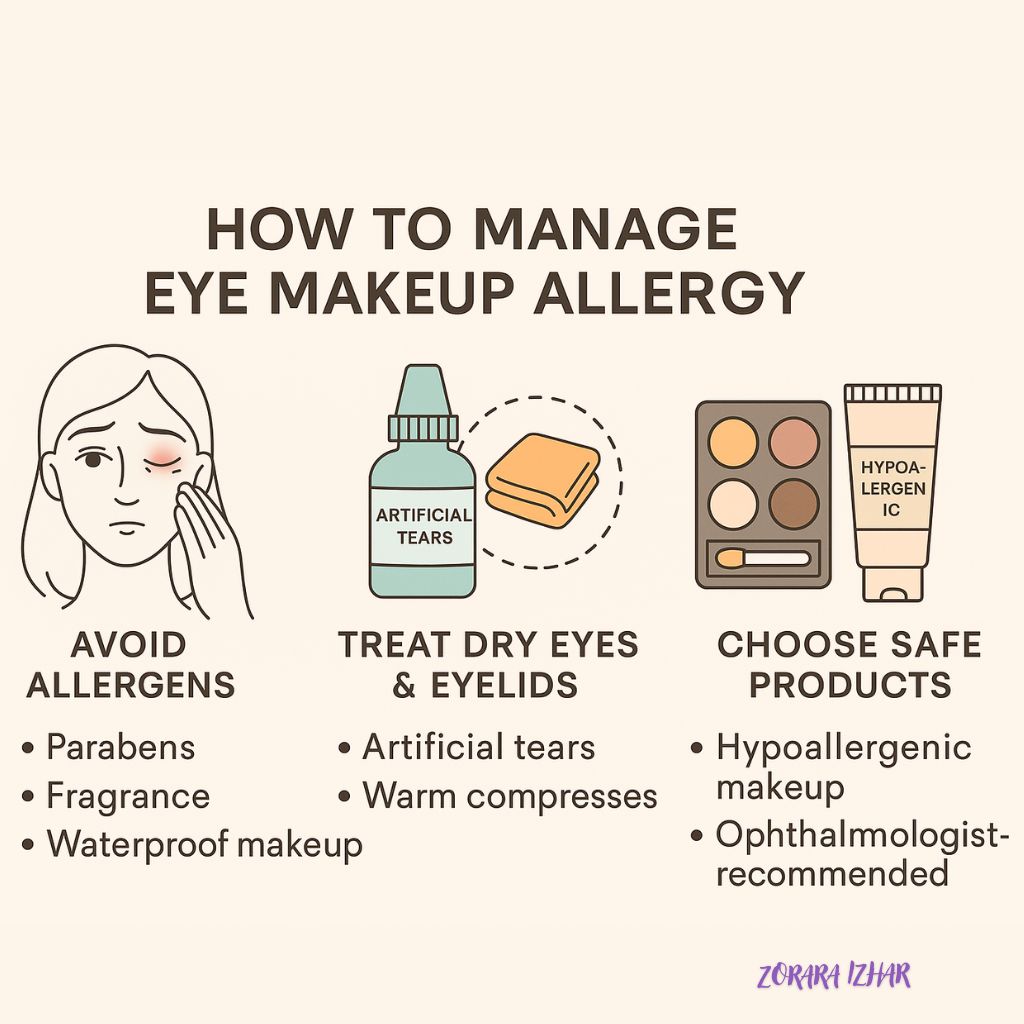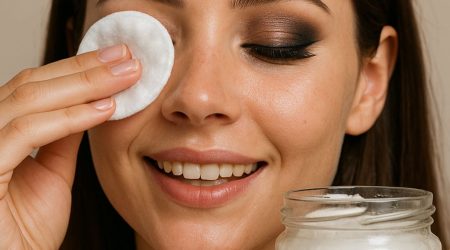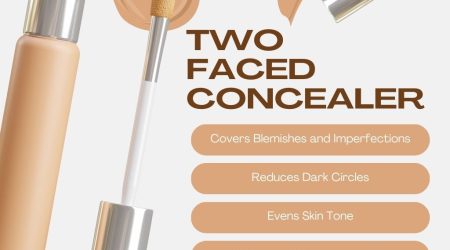18
May
Best Eye makeup for Sensitive eyes
If you struggle with irritation, redness, or discomfort after applying cosmetics, you're not alone. Finding the right makeup for sensitive eyes can be a challenge, especially with so many products on the market that contain harsh ingredients. Whether you've had allergic reactions or just feel discomfort around your eyes, it's important to choose gentle, ophthalmologist-recommended products and follow safe application routines. In this guide, we’ll explore how to care for sensitive eyes while still enjoying your favorite makeup looks.
If your eyes water or sting but you're not experiencing an allergic rash, you might be dealing with sensitivity, not an allergy. Eye sensitivity means your skin or tear film reacts more easily to certain textures or ingredients — without involving your immune system.
Common Sensitivity Triggers:
Why Do My Eyes React to Makeup? 3 Major Reasons (And How to Avoid Them)
Makeup can elevate your look, boost your confidence, and express your creativity but for some people, wearing eye makeup comes with a frustrating downside: itchy, red, watery, or irritated eyes. If your eyes frequently react to makeup products, you're not alone. Understanding why this happens is the first step toward safer, irritation-free beauty. In this blog, we'll break down the top 3 reasons why your eyes might be reacting to makeup and what you can do to prevent it.Reason #1: Allergies
One of the most common reasons for eye irritation is an allergic reaction to certain ingredients in your makeup. This condition is known as contact dermatitis, and it can cause symptoms like:- Redness
- Itching or burning
- Swelling
- Flaky or dry eyelids
- Nickel: Frequently found in pigmented eyeshadows and liners.
- Lanolin: A moisturizing agent derived from sheep’s wool.
- Fragrance: Offers no cosmetic benefit for eyes and is a top irritant.
- Preservatives like Parabens and Phenoxyethanol
- BAK (Benzalkonium Chloride): Found in some eye drops and mascaras.
Personal Note: Even popular micellar waters labeled for “sensitive skin” have caused severe allergic reactions for me. Just because something works for others doesn’t mean it’s safe for your skin.Quick Tips:
- Stop using a product at the first sign of irritation.
- Perform a patch test on your wrist before applying new eye products.
- Look for fragrance-free, alcohol-free, and paraben-free formulations.
 Reason #2: Sensitivity (Not an Allergy)
Reason #2: Sensitivity (Not an Allergy)
If your eyes water or sting but you're not experiencing an allergic rash, you might be dealing with sensitivity, not an allergy. Eye sensitivity means your skin or tear film reacts more easily to certain textures or ingredients — without involving your immune system.
Common Sensitivity Triggers:
- Glitter or shimmer particles that flake into the eye.
- Powder fallout from eyeshadow.
- Eyeliner or mascara applied too close to the waterline, clogging oil glands.
- Dry eye syndrome, which can amplify irritation.
- Use cream eyeshadows instead of powders to avoid fallout.
- Apply products outside the lash line, not directly on the waterline.
- Choose ophthalmologist-tested and dry-eye-safe makeup.
Brands like 2020 Beauty by Dr. Diane Campos and You & Eye by Dr. Nikki are formulated specifically for people with sensitive eyes and dry eye conditions.
Reason #3: Poor Eye Hygiene & Expired Products
Old or improperly stored makeup products are a breeding ground for bacteria, and bacteria near your eyes is a recipe for disaster. Using expired or contaminated makeup can cause:- Conjunctivitis (pink eye)
- Styes
- Clogged meibomian glands (leading to dry eye)
- It smells “off” or different.
- The texture has changed (clumpy, dry, etc.).
- You’ve had it for more than 3–6 months.
- Replace mascara and eyeliner every 3 months.
- Never share eye makeup — not even with close friends.
- Wash brushes and applicators weekly.
- Don’t store makeup in hot or humid environments.
Bonus Tip: Don’t Trust Buzzwords Blindly
Misleading Labels to Watch Out For:- “Hypoallergenic” – not regulated by the FDA in the U.S.
- “Dermatologist-tested” – doesn’t guarantee safety for your eyes.
- “Natural” or “Organic” – natural ingredients can still cause reactions.
How to Choose Eye-Safe Makeup Products
Look for products that are:- Fragrance-free
- Ophthalmologist-tested
- Oil-free (if you’re prone to styes or blepharitis)
- Formulated by eye doctors, especially if you wear contact lenses or have dry eye
- 2020 Beauty
- You & Eye
- Almay (sensitive eye range)
- Clinique (Allergy-Tested line)
FAQs: Eye Reactions to Makeup
1: Why do my eyes burn when I wear eyeshadow?
Burning eyes could be a sign of sensitivity or allergy to ingredients like fragrance, preservatives, or even pigment dyes. Powder fallout may also enter the eye and irritate the surface. 2:How can I wear eye makeup with sensitive eyes? Use minimal, clean formulas that are ophthalmologist-tested. Avoid applying products on the waterline and opt for creamy, smudge-proof products that don’t flake. 3:Can mascara cause eye infections? Yes. Mascara tubes can become bacterial breeding grounds over time. Always replace mascara every 3 months and avoid pumping the wand (it introduces air and bacteria). 4:Is “hypoallergenic” makeup safe for everyone? No. "Hypoallergenic" is not a regulated term. You may still react to such products depending on your sensitivities.Final Thoughts
If your eyes frequently react to makeup, it's not just bad luck — it's your body telling you something. Whether it’s an allergy, sensitivity, or bacterial contamination, there are clear steps you can take to reduce irritation. By choosing the right products, practicing good hygiene, and paying attention to your body’s signals, you can enjoy makeup without compromising your eye health.Share this post
RELATED
Posts
How to prep your skin before makeup?
Your makeup is only as good as the canvas underneath. If you’ve ever struggled with patchy foundation, creased concealer, or uneven texture, the real culprit might not be your products—it could be your skin prep. Knowing how to prep your...
Is Coconut oil good for makeup removal?
If you're on the hunt for a natural, effective, and affordable makeup remover, you’ve probably heard about coconut oil. But is coconut oil good for makeup removal?
Yes—coconut oil is not only good, it's excellent for removing even stubborn makeup like...




